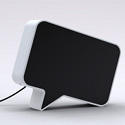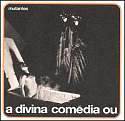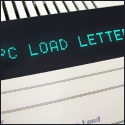|
First, from the way you describe it I think you'd benefit from changing your approach to mixing. Rather than thinking of what you can add to make the mix sound better, think of what you can take away that isn't needed and could clean up the mix. Cutting bass from normal guitars is a good start, as it will free up some headroom and make the mix sound cleaner. Besides that, pull them back in the mix a bit more, they don't need to be that loud and they're drowning out the drums. Try to find a balance. As for your drums, before you start applying any effects to them make them sound balanced first. Mute each channel, then one by one bring them up and mix them in until they sound balanced with no compression. Use EQ to remove frequencies from each drum channel you don't need to help make them sound cleaner. Cutting frequencies from your guitars and bass that you don't need may help further to make them more intelligible. Compression can help make things sound more consistent and make things appear louder, if you know how to use it. It may be a good idea to read up on what each value does to any audio passing through the compressor. It's a bit lengthy to describe here but here's some reputable guides to what they do and how to use them: http://www.soundonsound.com/sos/1996_articles/apr96/compression.html http://www.tweakheadz.com/compressors.htm The way I was taught was to set the threshold and attack time to their lowest values, the ratio and release time to their highest values, leave input gain at 0db/unity gain if present, and makeup/post gain to any value as long as you can hear it. Then, adjust the attack time until you like the sound, then adjust the release time to taste, raise the threshold so it isn't triggering constantly and then adjust the ratio to a reasonable value. This way you can hear how each value is affecting your sound. Just keep practicing and you'll have a consistent balanced sound that'll be ready for mastering eventually.
|
|
|
|

|
| # ? May 12, 2024 21:30 |
|
Are there any suggestions for a durable road mic? I was suggested a Shure KSM141 earlier but I'm not sure if it will stand up to field recording and I don't want to have my mic break on me. I will be using this with a Zoom H4n and mostly for interviewing, though I might end up doing some instrumental recording. I was thinking about a rugged dynamic mic like the Shure SM63. Any thoughts? Are there condenser mics that will stand up well to travel?
Queen Lakshmi Bai fucked around with this message at 14:30 on May 5, 2009 |
|
|
|
|
Queen Lakshmi Bai posted:Are there any suggestions for a durable road mic? I was suggested a Shure KSM141 earlier but I'm not sure if it will stand up to field recording and I don't want to have my mic break on me. I will be using this with a Zoom H4n and mostly for interviewing, though I might end up doing some instrumental recording. I was thinking about a rugged dynamic mic like the Shure SM63. Any thoughts? Are there condenser mics that will stand up well to travel? What do you do with your condensers, sit on them? They're more sensitive to being dropped and poo poo, sure, but if you put them back in the case or pack 'em up in foam or whatever most condensers are pretty durable unless you're getting ridiculously high end studio-oriented stuff. What kind of interviewing are you doing? Looks like that recorder has two XLR's in, if it's just you interviewing another person why not try two lavalier microphones?
|
|
|
|
I've thought about lavaliers (the AT899 sounded really good to me), but I think those would have really limited long-term utility and a dynamic or condenser might be a better investment. If a thin-diaphragm condenser mic will stand up to travel that's great, I just heard they were notoriously fragile.
|
|
|
|
|
Queen Lakshmi Bai posted:I've thought about lavaliers (the AT899 sounded really good to me), but I think those would have really limited long-term utility and a dynamic or condenser might be a better investment. If a thin-diaphragm condenser mic will stand up to travel that's great, I just heard they were notoriously fragile. They are more fragile than dynamics, sure, but they aren't fine china. Take care of your poo poo and the'll be fine. If you're interviewing people a tiny lavalier you can wrap up in a padded bag seems a lot more convenient than a stick mic you have to put on a stand and hope the person talks right into (if you don't have mobile monitoring for them they won't know if they're on mic or not).
|
|
|
|
wixard posted:bunch of good stuff I got it working, thanks! It's a tiny bit hissy, but totally acceptable for what I'm using it for. So glad I don't have to shell out for another piece of hardware. Thanks again!
|
|
|
|
I'm sort of new to this, so excuse my obvious questions, but I'm trying to figure out where most artists get their drum samples from. I'm especially curious about this concerning drum n' bass/jungle/crazy Aphex Twin like poo poo etc. I've figured that the two most common ways to lay down a beat are just straight up sampling one from a recording or programming one yourself using a kick & snare or whatever, but what about those crazy rear end breakbeats? It seems like those would be a lot harder to dig for than, say...some classic 4/4 break from a Soul record and certainly a lot harder to program from scratch using drum kit samples. I've heard of the "Amen break", but I don't know many people even use that these days since it's become a bit of a cliche. What's the process?
SouvlakiPlaystation fucked around with this message at 21:34 on May 8, 2009 |
|
|
|
Drum and bass breakbeats are breaks sampled, cut up and rearranged. Part of the reason they sound the way they go is that they include the ghost hits and other noise from the original sample.
|
|
|
|
SouvlakiPlaystation posted:I'm sort of new to this, so excuse my obvious questions, but I'm trying to figure out where most artists get their drum samples from. I'm especially curious about this concerning drum n' bass/jungle/crazy Aphex Twin like poo poo etc. I've figured that the two most common ways to lay down a beat are just straight up sampling one from a recording or programming one yourself using a kick & snare or whatever, but what about those crazy rear end breakbeats? It seems like those would be a lot harder to dig for than, say...some classic 4/4 break from a Soul record and certainly a lot harder to program from scratch using drum kit samples. I've heard of the "Amen break", but I don't know many people even use that these days since it's become a bit of a cliche. What's the process? This be the thread for you. edit: Which is not to say this one won't be helpful.
|
|
|
|
SouvlakiPlaystation posted:I've figured that the two most common ways to lay down a beat are just straight up sampling one from a recording or programming one yourself using a kick & snare or whatever, but what about those crazy rear end breakbeats? - use the entire loop, but retrigger it periodically (see also: trackers) - don't cut out a single instrument, but pick a combination of snare/kick, hihat/snare, etc. - shuffle using pseudo-randomness (e.g. dBlue Glitch, Gross Beat).
|
|
|
|
What is a decent affordable sound card to get for use with soft synths and recording? Do most cards these days support ASIO?
Fortissimo fucked around with this message at 17:02 on May 16, 2009 |
|
|
|
RIP LISA LOPEZ posted:What is a decent affordable sound card to get for use with soft synths and recording? Do most cards these days support ASIO? A sound card isnt specificly what you want. Whatever you're getting as an audio interface (usb, firewire, whatever) will effectively be your sound card when you're doing music, it could be a PCI card if you want but there are more options than that.
|
|
|
|
Three Red Lights posted:A sound card isnt specificly what you want. Whatever you're getting as an audio interface (usb, firewire, whatever) will effectively be your sound card when you're doing music, it could be a PCI card if you want but there are more options than that. I'm using a usb midi keyboard (Edirol PC-80). I get lag and other sound issues with my current card (some sound blaster garbage) so what are my options?
|
|
|
|
Well your options are basically anything is what I meant. Any audio interface would be an improvement on your current one. Your choice is whether you want to go usb 2.0, firewire or PCI and what features you want, performace of softsynths has more to do with your CPU than anything. Heres a fairly decent guide: http://www.tweakheadz.com/soundcards_for_the_home_studio.htm The only real recommendation I have is dont get an Alesis as they are garbage.
|
|
|
|
Are there any easy tutorials online about Mixing and making stuff sound "Studio Quality" when you have a semi-lovely setup. I'm suffering from a case of recording a song and it sounding like I recorded it in a paperbag on the floor of an empty bathroom.
|
|
|
|
Thats a bit of an awkward question as what makes a song sound "studio quality" is like asking what goes into a good painting, or how you build a decent house. The answer is always going to be "tonnes of poo poo". You're better off posting the song and asking for specific critiques. If you want a how-to guide buying a book would be more informative than any single free website I could think of.
|
|
|
|
Three Red Lights posted:Thats a bit of an awkward question as what makes a song sound "studio quality" is like asking what goes into a good painting, or how you build a decent house. The answer is always going to be "tonnes of poo poo". You're better off posting the song and asking for specific critiques. If you want a how-to guide buying a book would be more informative than any single free website I could think of. What book would you recommend?
|
|
|
|
Anyone use Logic Pro and up for an easy question? I have some live audio tracks that I'd like to speed up without changing the pitch. I change the tempo with the tempo indicator at the bottom, and all of my software instruments speed up while my live ones don't. I can select the live track, go to Factory-->Time and Pitch Machine, and there is a function that allows me to set bpm (though sometimes that works on my live tracks and sometimes it doesn't- I am not seeing a pattern). When it works, it is a destructive edit and I cannot undo it. I can also "Apply region length to locators" and make a selection last exactly as long as the green locator bars I set at the top of the screen, but that technique gives me many different tempos when I have multiple tracks with various starting lengths. Basically, all I want to do is play around with the tempo of these tracks a little bit- play them at 90%, 110%, etc. I am sure that there is a better way than saving my project, applying the time function to each of several tracks, reloading the old project, and repeating. I love logic, but sometimes the easiest things are impossibly difficult. Everett True fucked around with this message at 07:58 on May 18, 2009 |
|
|
|
GrazoTheClown posted:What book would you recommend? "The Musician's Guide To Home Recording", by Peter McIan, is one I like a lot. It was written in the early 90s and there's parts of it that are really dated (a couple of chapters about recording to tape, hardware MIDI, and the "future" of digital recording), but beyond that it's full of excellent information about (instrument specific) microphone placement, general EQ guidelines, acoustic room treatment, how to set up signal routing and submixes, etc.
|
|
|
|
This is a bit of a noobie question but I need some help. Right now my home setup consists of a midi keyboard and ableton live with the sound coming out of my stereo which is just and RCA > 1/8" stereo cable going from PC to Stereo. Now I want to add in a USB sound card (probably an Mbox as I would like Pro Tools as well) so I can hook up a mic and not have any lag when recording (ASIO drivers sometimes don't work). However if I were to buy an Mbox am I able to continue using my speakers or stereo for the sound to come out of or would I need a pair of studio monitors? Am I right in understanding that you connect studio monitors with 1/4" cables to the output of an mbox but if I were to go down this route I wouldn't be able to have them connected to the CD player/stereo and would need to play everything through the computer. I've never had to set this stuff up myself. I've always just used setups of someone elses.
|
|
|
|
No, you could also run the output of the Mbox directly into your stereo amp (you'd just need a couple of 1/4" to RCA adapter plugs). Studio monitors take the same line level input as a home stereo, the only difference is (with active monitors) the amp circuitry is built right into the speaker enclosure and you don't need a seperate amp.
|
|
|
|
I got an Mbox2 recently, and I'm finding the ProTools documentation pretty lacking. Is there a particular book or web guide that covers basic to intermediate use of version 8? n/m, this is what I was looking for: Reference Guide mclast fucked around with this message at 23:27 on May 20, 2009 |
|
|
|
mclast posted:I got an Mbox2 recently, and I'm finding the ProTools documentation pretty lacking. Is there a particular book or web guide that covers basic to intermediate use of version 8? http://duc.digidesign.com/ The DUC is also very helpful (although not always literate).
|
|
|
|
Reaper 3.0 is out and looks awesome!
|
|
|
|
I have a Yamaha MG102c mixer and I'm wondering if this thing is sufficient as a headphone amp. I've got it hooked to the RCA out of an M-Audio Fast-Track at the moment and bass comes in significantly more defined than the way it does from a Toshiba laptop I'm using right now (and sounds just a bit better than my Macbook). Is this sufficient as a headphone amp or will I benefit from a PA2V2 or a more dedicated amp? Edit: Oh, and I'm using AKG K240s with 55ohm impedance, so I'd think they really need a good power boost.
|
|
|
|
Just a quick recording question. The only thing Ive ever recorded was acoustic music. Using a mic always seemed to record everything quite nicely. Now I want to record some of my electric stuff. While messing around today, I just plugged my bass directly into my mixer, bypassing an amp and mics. Doing this, the volume is very quiet, and if I move it up to the right level it starts to distort and clip. Is this because its just plugged right into the mixer? For some reason I thought doing so would amplify the signal or something. Is it as simple as using my amp to "amplify" the signal? (I hope the answer isnt as obvious) Anyway, whats the best way to record electric guitar/bass? Should I plug into my half stack and just use a mic? edit: ok. after reading the OP, my problem is probably that only the mic input has a preamp on the mixer Cage fucked around with this message at 07:58 on May 29, 2009 |
|
|
|
Cage posted:Just a quick recording question. The only thing Ive ever recorded was acoustic music. Using a mic always seemed to record everything quite nicely. Now I want to record some of my electric stuff.
|
|
|
|
This thread is fantastic, I just got the end of it today. I'm planning on replacing my 2 year old laptop with a new computer. I was planning up spending up to $1000CAD on a thinkpad r500 which has a core 2 duo p8600 processor, and 4 gigs of ram. Will this be enough for recording 5-6 tracks on ableton live, while using VST's like guitar rig, and ezdrummer? Right now my laptop hits 100% cpu very quickly if I have guitar rig, ez drummer, and a pair of vocal tracks with no effects. So will the new laptop be enough, or should I build a desktop? And does anyone have any experience with the Tascam FW-1082? That thing looks amazing for the price.
|
|
|
|
Stabbing Spork posted:This thread is fantastic, I just got the end of it today. Thats about par with mine and it should be fine. aiming for lower latancies might make it choke sometimes though. Regardless though I find its best to conserve cpu by resampling tracks. Dont record the guitar rig track, bounce the output of it to another track then record that. That way you get multiple guitar tracks with only one instance of GR.
|
|
|
|
Anyone know if ProTools 7.4.2 will work with OS X 10.5.7? I'm still running 10.5.4 but I don't have the money to upgrade to 8 just yet
|
|
|
|
infiniteseal posted:Anyone know if ProTools 7.4.2 will work with OS X 10.5.7? I'm still running 10.5.4 but I don't have the money to upgrade to 8 just yet It should. I've got the most recent pre-8 revision (7.something), and it's working fine on 10.5.7 for me. I think Digi may have officially qualified 10.5.7.
|
|
|
|
So I'm running my clarinet through a Dunlop JH-1 wah pedal and sometimes some extra effects using amplitube. How familiar are people with AMT microphones? Since the clarinet has a strange way of producing sound, they have these double condensers for getting the sound out of the body and the bell. Any experiences with these? Also, how necessary is this double condenser versus just a single set up that could be placed far enough out to pick up all the sound like the Roam-1?
|
|
|
|
El Miguel posted:It should. I've got the most recent pre-8 revision (7.something), and it's working fine on 10.5.7 for me. I think Digi may have officially qualified 10.5.7. I checked their website and they only officially qualified 7.4.2 (last 7 series) to 10.5.4 whereas 8 starts with 10.5.7. Apple hasn't made any significant changes between those upgrades so I figured it should be fine, but protools can be so complex you just never know
|
|
|
|
infiniteseal posted:I checked their website and they only officially qualified 7.4.2 (last 7 series) to 10.5.4 whereas 8 starts with 10.5.7. Apple hasn't made any significant changes between those upgrades so I figured it should be fine, but protools can be so complex you just never know Hmmm. Well, it seems to be working just fine for me. I've held off on upgrading to 8 out of concerns for a performance hit on my MBP (late 2007), as well as the usual stability and plugin compatibility concerns.
|
|
|
|
(Lots and lots of words about a hiss in my setup) Culprit turned out to be the mixer, coughed up the cash for a Yamaha and now everything sounds great. Thanks for the help 
blinkeve1826 fucked around with this message at 06:31 on Jun 3, 2009 |
|
|
|
Behringer mixers and usually low-end gear such as most Behringer stuff aren't all that quiet. The culprits are mostly the mixer and the microphone in this case, but if I were you I'd probably invest in a better mixer or if you really don't need all those inputs, consider purchasing a cheap M-Audio usb interface or something, as it'll always be better than a mixer by itself.
|
|
|
|
Kudru posted:So I'm running my clarinet through a Dunlop JH-1 wah pedal and sometimes some extra effects using amplitube. How familiar are people with AMT microphones? One thing to consider with a mic that has built-in wireless though is that if either the mic or wireless can't be used for whatever reason, you have to replace both. Independent of the mic, those Samson wireless systems they use generally sound pretty bad in my experience and interference is common with them, at least here in the Philadelphia area. Most touring woodwind players use a Shure Beta98H/C and some flavor of Shure wireless, depending on how bulletproof they need it to be. As a sound engineer I cringe whenever I see a musician show up with a Samson unit. It's usually a fight to make anything sound right, and bursts of RF interference are common. A Shure SLX wireless system would probably be under $600 for a receiver and bodypack and $200 for a Beta 98H/C. You might be able to get a deal more comparable to that Samson nonsense if you PM RivensBitch, he deals Shure products. It looks like AMT makes some of their microphones to work with Shure's wireless systems so you could go with AMT mics and Shure wireless.
|
|
|
|
I've always heard you should use a condenser mic for vocals but why is this? I'm having a pain getting a good vocal track and I'm wondering whats so criminal about a dynamic mic.
|
|
|
|
Three Red Lights posted:I've always heard you should use a condenser mic for vocals but why is this? I'm having a pain getting a good vocal track and I'm wondering whats so criminal about a dynamic mic. More sensitive in general, more nuance, etc i.e. greater frequency response. Obviously dynamic mics reproduce vocals just fine or no one would ever use them live. A nice dynamic will sound better than a shitbox off-brand condenser, just get the best mic you can afford, but yeah, most recording studios use condenser mics for that reason. Also a phantom-powered condenser generally outputs a stronger signal than a dynamic requiring less amplification/processing.
|
|
|
|

|
| # ? May 12, 2024 21:30 |
|
El Miguel posted:Hmmm. Well, it seems to be working just fine for me. I've held off on upgrading to 8 out of concerns for a performance hit on my MBP (late 2007), as well as the usual stability and plugin compatibility concerns. Updated and it works great, thanks!
|
|
|
























